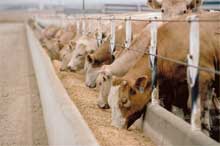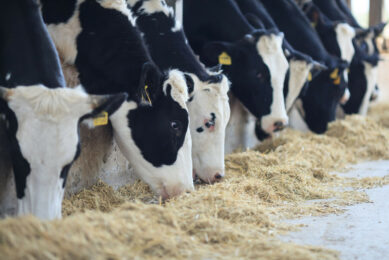Unapproved antibiotics ending up in animal feed through DDGS

According to a new investigation has found that unapproved antibiotics are being routinely used in ethanol production and ending up in animal feed.
Three years ago food safety and public health advocates began to recognize that another sector of agriculture—the corn ethanol industry—also played a role in antibiotic misuse. Many ethanol producers routinely add antibiotics such as penicillin and erythromycin (both important for human health) and virginiamycin and tylosin (both have analogues used to treat humans) to the tanks where they mix corn mash with warm water to ferment ethanol.
Bacterial outbreaks are common in ethanol plants (the bacteria like the warm, moist conditions and the corn sugar), and can lead to yield (and therefore profit) losses. Antibiotics help keep bacterial counts low, but fuel isn’t the only product that leaves ethanol plants. Producers also sell what is known as “distillers grains” (DGS), the nutrient-rich, leftover corn mash, to cattle, dairy, swine and poultry producers for use as a livestock feed. In 2008 the FDA found antibiotic residues in DGS samples taken from ethanol plants across the country, results that have been confirmed by subsequent studies.
Julia Olmstead, senior program associate with the Institute for Agriculture and Trade Policy (IATP), says producers and the FDA are turning a blind eye, because currently no antibiotics are approved for use in making ethanol.
"They’re being marketed in contradiction to federal regulation, but the FDA isn’t actively regulating that. We’re saying that the FDA should immediately prohibit antibiotic sales to the ethanol industry, until and if they are approved."
Viable alternatives to the use of antibiotics in ethanol production are available, she adds.
"A lot of producers do use those. POET, the world’s largest ethanol producer, is now entirely antibiotic free. But a lot of producers are hesitant I think to make the switch."
Because of that hesitation, Olmstead urges either the federal or state government to step in to provide support to help producers make the transition.
The report is available at http://www.iatp.org.











